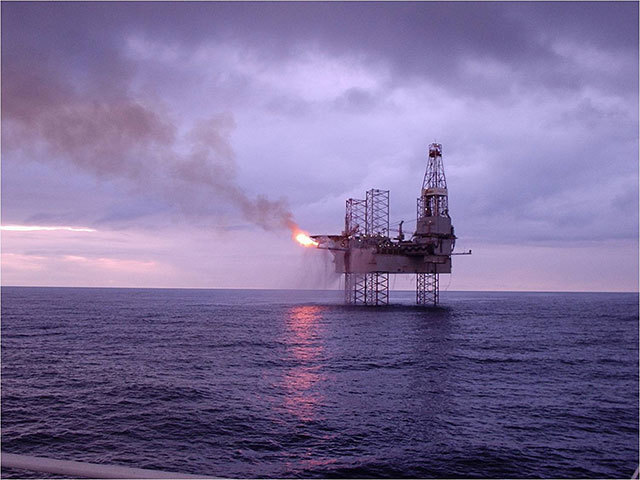
Industry body Oil & Gas UK has painted a “bleak” picture of the offshore sector in a new report that calls for a three-pronged set of reforms that will help the North Sea deliver on its full potential over coming decades.
The report laid out a mixed bag of figures, and not all of them make for pleasant reading for an industry staggering under the weight of low oil prices and high costs.
OGUK found that only 14 out of 25 expected exploration wells were drilled last year, while the cost of producing a barrel of oil last reached a record high of £18.50 in 2014.
Investment rose to by £400million to £14.8billion year-on-year, but this trend was due to cost over-runs and project delays, rather than increased confidence among financial backers.
To make matters worse, very little fresh investment is lined up at a time when an estimated £94billion is needed to help recover the 10billion barrels of known oil reserves, the report warned.
The report did also have some good news. Production fell by just 1% to 1.42million barrels per day compared to 2013, which is the best
year-on-year performance since 2000.
Furthermore, it says output could hit 1.43million barrels per day in 2015, barring serious disruptions.
And the fact that industry leaders had identified problems and solutions in the Wood Review — which came out last February, months before the oil price plummeted — means progress has already been made in ironing out some of the kinks.
Watch Oil & Gas UK economics director Mike Tholen discuss the figures below:
One of the steps taken since last February was to go about creating an “arms-length” regulator, the Oil and Gas Authority (OGA), which formally starts work in April.
Chancellor George Osborne has also signalled that government policy could be receptive to the industry’s needs in this month’s upcoming Budget.
But there is much work still to be done, according to Oil & Gas UK chief executive Malcolm Webb, who called for “a concerted effort on three fronts” — namely, tax reform, regulation and costs cutting — to help attract investment.
The industry body wants a permanent reduction in the headline rate of tax.
It also wants to simplify the existing convoluted system of field allowance incentives, offering instead a single, basin-wide incentive based on investment size, and to slash unit operating costs by 40% through increased efficiency.
Mr Webb said: “This offshore oil and gas industry is a major national asset. Our indigenous resources hold the promise of a successful industry for decades to come and we have the skills needed to realise that potential.”
“The industry is taking measures to improve its cost efficiency and we are pleased that even before the steep fall in oil price, the Government took the important steps of implementing the Wood Review recommendations and conducting a comprehensive tax review.”
“The time has now come for delivery of permanent change on those fronts.”
Oil & Gas UK economics director Mike Tholen said the report was “not all bleak”, pointing to the slowdown in the decline in North Sea production.
Mr Tholen said: “Production has stopped falling, which is a good starting point, and it is fortunate that before oil prices fell companies were already looking at how to be more efficient.
“If we get this right now, there are opportunities.
“By 2018/19, more than half of production will be coming from fields that were not even in development in 2010.”
A UK government spokeswoman said the report underlined the need for a united approach between the government, the OGA, and the industry to make sure investment and exploration in the UK North Sea continues.
She said: “The UK government recognises how important the North Sea is, both in terms of the thousands jobs it supports and the benefit it brings to the UK economy.
“The package of fiscal changes and initiatives announced by Treasury in early December shows the Government understands the challenges and is on the front foot in dealing with them.”
Recommended for you
